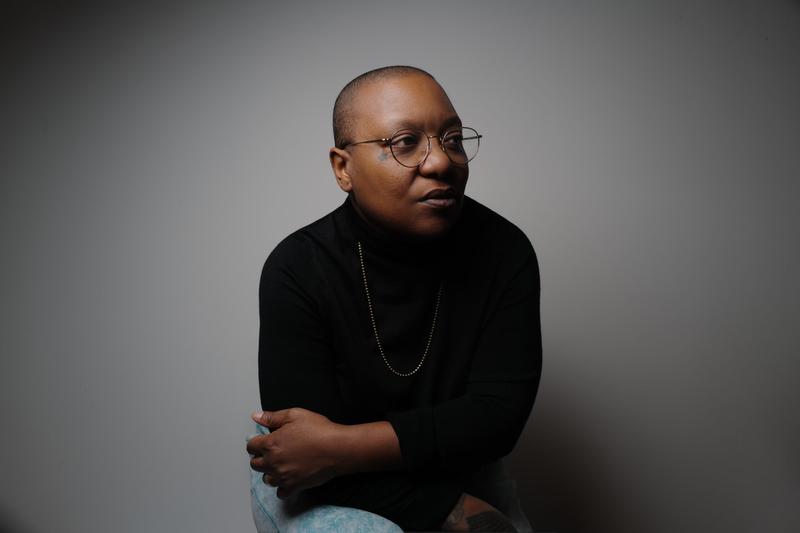
This week, the surprise return of Sigur Rós; the provocative music of Julius Eastman, and genre-blind albums from Meshell Ndegeocello and Butcher Brown.
Sigur Rós Makes An Unexpected Return
The hugely popular Icelandic post-rock band Sigur Rós has just released Átta (Icelandic for “eight”), their eighth LP and first in ten years. The album was a surprise, issued with one day’s notice and featuring the return of keyboardist Kjartan Sveinsson, who had left the band in 2012. Sigur Rós has always been known for soaring, cinematic works that featured lead singer Jonsi’s celestial falsetto, and with lyrics in either Icelandic or the band’s made up Hopelandish, the focus has always been on the sound rather than any literal or narrative meaning. Átta doubles down on the cinematic sound – their drummer has left the band amid allegations of sexual assault; but the London Contemporary Orchestra joins the remaining trio to create lush, often moody soundscapes. Much of it is quite close to contemporary classical music, but this track, “Klettur,” has enough of a rhythm to be reminiscent of the band’s earlier musical heights.
Meshell Ndegeocello’s Omnivorous Omnichord Real Book
The singer, multi-instrumentalist and composer Meshell Ndegeocello has, over the course of thirty-plus years, encompassed pop, R&B, jazz, and various experimental musical styles, somehow making them all uniquely hers. The Omnichord Real Book is her first album for the historic Blue Note Records, and yes, it does occasionally feature the Omnichord, an early-80s portable electronic instrument that used buttons to play preset rhythms and chords. But it also features a host of guests, like harpist Brandee Younger, guitarist Jeff Parker, pianist Jason Moran, and South African singer Thandiswa. The album skirts lots of different styles without ever settling into one; some songs have a cosmic vibe, others are more melancholy – the line “things fall apart” appears in several tracks. Album opener “Georgia Ave” begins with the Omnichord and features vocals and sax from Josh Johnson, who also produced the record. I’ve picked it here not because I think it’s the strongest track, but because it may be the most representative: with its classic Hammond B3 organ, acoustic guitar, and warm horns, it’s almost like the overture to a musical, where it offers glimpses of sounds that will come later.
Wild Up Continues Its Survey of Julius Eastman’s Music
If you’re not familiar with Julius Eastman, he was a singular figure on the New York downtown scene in the 70s and early 80s, who wrote music that drew on the Minimalism that was just coming into vogue but also had roots in improvisation and a sense of community building. And as a gay Black man, he found community to be a tenuous thing; he suffered from addiction and mental health issues, and had periods of homelessness that ended with the apparent loss of a lot of his music scores. By the time he died in 1990, he was largely forgotten, and his death wasn’t noted in the music press for many months. But in recent years, his music has come roaring back, as recordings and scores have been unearthed and made available, and the LA new music group Wild Up has been releasing their own versions of his music. Volume 3 is just out. It’s called If You’re So Smart, Why Aren’t You Rich (Eastman had a knack for provocative titles) and includes the expansive, dramatic title track as well as a hard-driving version of one of Eastman’s most-performed works, “Evil N-word.” (Wild Up uses the composer’s actual title, which is not “N-word.”) Both Devonte Hynes (of Blood Orange and formerly Lightspeed Champion) and Adam Tendler join Wild Up as guest pianists for this performance. Despite having a title that no one will say on the radio, this is a good introduction to Eastman’s music – pulsating and earthy, but constantly striving for something like transcendence. At the end, the sustained drones of the strings suggest an ambiguous end to that quest.
Quantic Keeps Pushing The Borders Of Dance Music
Quantic is the British-born, Brooklyn-based producer Will Holland. His music offers a globally-informed, futurist take on dance music, often using real strings, tropical rhythms, and guest vocals. All of those appear on his new single, “Run,” done with the London soul singer Andreya Triana. From its chamber music opening, “Run” moves steadily through a hint of Brazilian pop, Balearic dance music, and ends up with a neo-disco groove.
Butcher Brown Isn’t Waiting For Someone Else To Label Their Music
Richmond band Butcher Brown has announced that the group’s next LP will be called Solar Music, which is how they’ve taken to describing their mix of sometimes spacey jazz with hip hop and soul/funk. That album isn’t due until October but they’ve just released the first single, called “I Can Say To You.” Pairing rapper Tennishu with guest singer Vanisha Gould, the band turns in a soulful piece that presents as relaxed electro-pop. The chorus sounds comforting – “you’ll find a way” Gould sings repeatedly. But the following line, “There’s nothin’ else I can say/To ease your mind,” suggests an internal struggle still being fought.
Buffalo Nichols Covers A Classic Blues
Milwaukee’s Buffalo Nichols doesn’t treat the blues as something that’s old and consigned to history. For him, the blues is a living tradition, and his forthcoming album The Fatalist, due in September, is full of songs that use the musical language of the great blues players of a century ago with the verbal language of a 21st century songwriter who’s grown up with soul and hip hop. He also uses contemporary studio techniques, including drum machines and sampling. While most of the album is original, Nichols acknowledges his roots by covering Blind Willie Johnson’s “You’re Gonna Need Somebody On Your Bond.” The drum machine somehow doesn’t feel intrusive or anachronistic; the slide guitar moans; and a sample of legendary bluesman Charley Patton appears like a ghost intruding on a pleasant memory.
